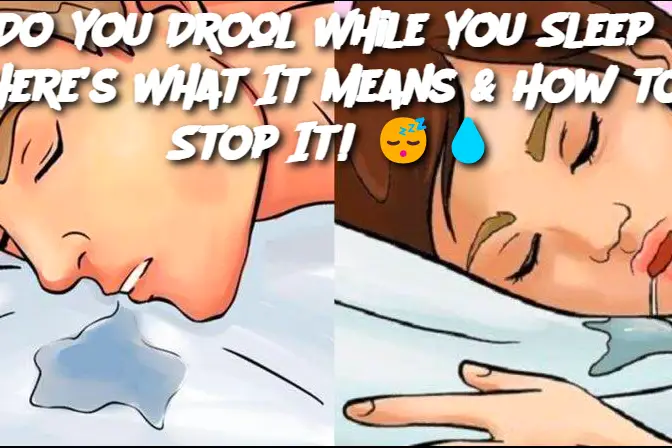Drooling happens when excess saliva escapes from your mouth instead of being swallowed. Several factors can contribute to this, including:
1️⃣ Sleeping Position 🛌
✔ Side or stomach sleepers are more likely to drool, as gravity pulls saliva out.
✔ Sleeping on your back can help keep saliva in your mouth.
2️⃣ Blocked Nasal Passages 👃
✔ If you have a cold, allergies, or sinus infection, you may breathe through your mouth, causing drooling.
✔ Try nasal sprays, steam inhalation, or saline rinses to clear congestion.
3️⃣ Acid Reflux (GERD) 🔥
✔ Gastroesophageal reflux disease (GERD) can stimulate excess saliva production.
✔ Avoid spicy, acidic foods & late-night eating to reduce symptoms.
4️⃣ Sleep Apnea & Breathing Issues 😨
✔ Obstructive sleep apnea (OSA) can cause difficulty breathing, leading to mouth breathing & drooling.
✔ If you snore, wake up tired, or feel like you’re choking at night, see a doctor.
5️⃣ Medication Side Effects 💊
✔ Some antidepressants, allergy meds, and muscle relaxants increase saliva production.
✔ If you notice excessive drooling after starting a medication, consult your doctor.
6️⃣ Neurological Conditions 🧠
✔ Conditions like Parkinson’s, stroke, or ALS can affect muscle control, leading to drooling.
✔ If drooling is excessive & persistent, seek medical advice.
